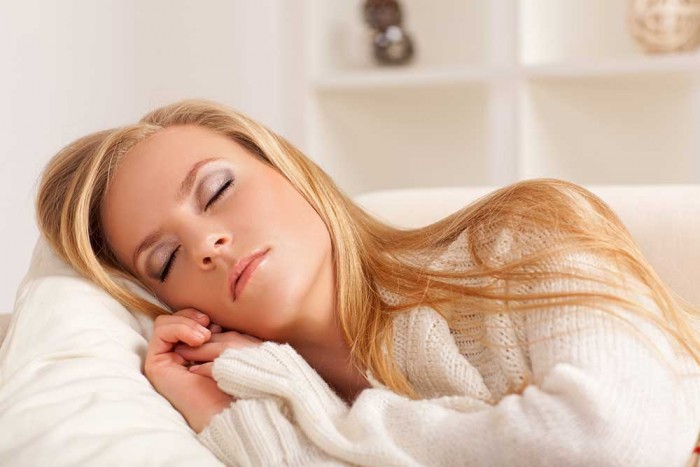
Restorative Sleep
Joel Peterson – Level 5 Personal Trainer Apple Athletic Club
It doesn’t matter how good of condition I’m in, how healthy I eat, or if I’m living a low stress lifestyle. If I don’t get the right amount of restorative sleep I’m a tired, irritable, grouchy mess.
When I was younger, I thought I could get by with four or five hours (or less) a night. I tried to convince myself that sleep was a waste of time and took hours away from being productive or partying (Ok, it was just partying). Looking back I know that my days were less than par in productivity and my health suffered in various ways and degrees.
How about you? How’s your sleep? Is it adequate to restore you physically and mentally for the coming day? My personal trainer, who was Mr. USA and one of the most intelligent men in this arena of health and physical fitness, set me straight and helped me understand the importance of adequate sleep. The second thing he asked me when we started twenty five years ago was, “Describe a typical night’s sleep for me”. Huh? What? How about “how much can you bench press” or “how fast can you run a mile?” He knew then what I found to be the most important aspect to fitness, energy, well-being, attitude and so on: ADEQUATE RESTORATIVE SLEEP. When I finally got it, my quality of life went to a new level. So – let’s talk about it and see what we can do to help you find and achieve this great formula for success.
How much sleep do you actually need?
Dr. Rubin Naiman, a clinical psychologist, author, teacher, and leader in integrative medicine approaches to sleep and dreams, recommends to simply sleep “enough hours so that your energy is sustained through the day without artificial stimulation.“ Dr. Naiman believes that a daytime nap is a natural requirement we for which we are biologically programmed.

So, how do we know how much sleep do we need? No two people are exactly the same or need the same amount of sleep. But it’s awfully close. Pay attention to clues your body may be giving you. For instance, if you need an alarm clock to wake up, and you wake up feeling tired and groggy, you probably need to go to sleep earlier (or get more restful sleep). It’s also said that if you fall asleep within a few minutes of your head hitting the pillow, you’re probably sleep deprived. A well-rested person will take about 10-15 minutes to fall asleep at night.
The Risks of ‘Just Getting By’ on Minimal Sleep
Poor sleep can actually impact virtually every aspect of your health, and the reason for this is because your circadian rhythm (sleep-wake cycle) actually “drives” the rhythms of biological activity at the cellular level. Hence disruptions tend to cascade outward throughout your entire body. For example, besides making you more susceptible to physical aches and pains, interrupted or impaired sleep can also:
- Increase your risk of cancer.
- Harm your brain by halting new neuron production. Sleep deprivation can increase levels of corticosterone (a stress hormone) resulting in fewer new brain cells being created in your hippocampus.
- Contribute to a pre-diabetic state making you feel hungry even if you’ve already eaten, which can lead to weight gain.
- Contribute to premature aging by interfering with your growth hormone production, normally released by your pituitary gland during deep sleep and during certain types of exercise, such as high-intensity interval training.
- Increase your risk of dying from any cause.
WHAT DO SLEEP EXPERTS HAVE TO SAY ABOUT GETTING ENOUGH RESTORATIVE SLEEP?
Don Pardi is a researcher who works with the Behavioral Sciences Department at Stanford University and the Departments of Neurology and Endocrinology at Leiden University in the Netherlands. According to Pardi, the following three factors are key to determining how restorative your sleep is:
- Duration— the number of hours you sleep. Sleep requirements are highly individual and can change from one day to the next depending on factors like stress, physical exertion, illness, and pregnancy just to name a few. On average, however, most people need about eight hours of sleep per night.
- Timing— the habit of going to bed at approximately the same time each night. Even if the duration of sleep is the same, when the timing of your sleep is shifted it’s not going to be as restorative.
- Intensity—this has to do with the different stages that your brain and body go through over the course of the night, the sequence of them, and how those stages are linked. Some medications will suppress certain phases of sleep and certain conditions like sleep apnea will lead to fragmented sleep. With these scenarios, even if you’re sleeping for an adequate duration and have consistent timing, your sleep will not be as restorative.
If you have these three areas covered and you’re still not sleeping well, maintaining a natural rhythm of exposure to sunlight during the day and darkness at night is one crucial foundational component to consider. The reason why light exposure during the daytime is so important is because it serves as the major synchronizer of your master body clock. To maintain healthy master clock timing, aim to adjust your light exposure to a more natural light rhythm, where you get bright light exposure during the day and limited blue light and bright light exposure once the sun sets.
Pardi recommends getting at least 30-60 minutes of outdoor light exposure during daylight hours in order to “anchor” your master clock rhythm. The ideal time to go outdoors is right around solar noon but any time during daylight hours is useful. Once the sun has set the converse applies. After sunset you want to avoid light as much as possible in order for your body to secrete melatonin, which helps you feel sleepy.
Consider implementing the following changes:
- Avoid watching TV or using your computer in the evening, at least an hour or so before going to bed. These devices emit blue light, which tricks your brain into thinking it’s still daytime. Normally, your brain starts secreting melatonin between 9 pm and 10 pm, and these devices emit light that may stifle that process. Even the American Medical Association now states:“…nighttime electric light can disrupt circadian rhythms in humans and documents the rapidly advancing understanding from basic science of how disruption of circadian rhythmicity affects aspects of physiology with direct links to human health, such as cell cycle regulation, DNA damage response, and metabolism.”
- Sleep in complete darkness, or as close to it as possible. The slightest bit of light in your bedroom can disrupt your body’s clock and your pineal gland’s melatonin production. Even the tiniest glow from your clock radio could be interfering with your sleep, so cover your radio up at night or get rid of it altogether. Move all electrical devices at least three feet away from your bed. You may want to cover your windows with drapes or blackout shades. If this isn’t possible, wear an eye mask.
- Install a low-wattage yellow, orange, or red light bulb if you need a source of light for navigation at night. Light in these bandwidths does not shut down melatonin production in the way that white and blue bandwidth light does. Salt lamps are handy for this purpose. You can also download a free application called F.lux that automatically dims your monitor or screens.
- Keep the temperature in your bedroom no higher than 70 degrees Fahrenheit. Many people keep their homes too warm (particularly their upstairs bedrooms). Studies show that the optimal room temperature for sleep is between 60 to 68 degrees Fahrenheit.
- Take a hot bath 90 to 120 minutes before bedtime. This increases your core body temperature, and when you get out of the bath it abruptly drops, signaling your body that you are ready to sleep.
- Avoid using loud alarm clocks. Being jolted awake each morning can be very stressful. If you are regularly getting enough sleep, you might not even need an alarm.
- Be mindful of electromagnetic fields (EMFs) in your bedroom. EMFs can disrupt your pineal gland and its melatonin production, and may have other negative biological effects as well. Ideally, you should turn off any wireless router while you are sleeping. You don’t need the Internet on when you are asleep.
